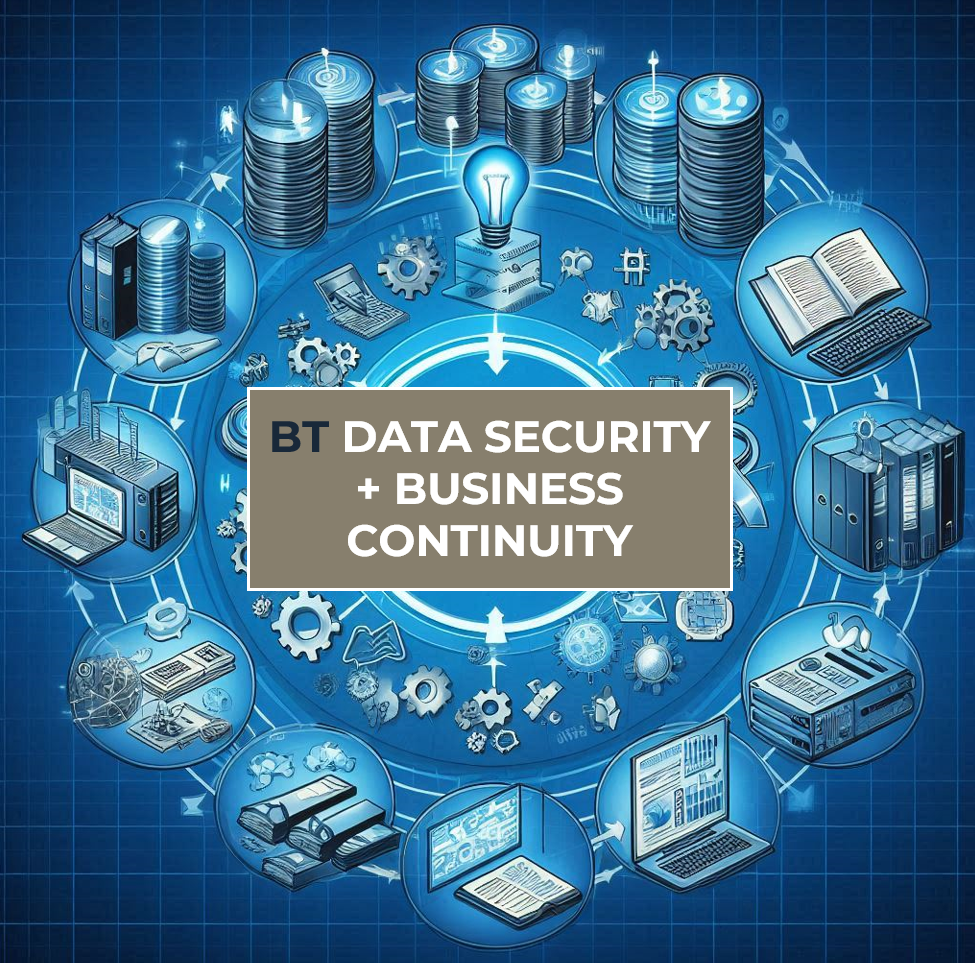DATA SECURITY + BUSINESS CONTINUITY
Our businesses are more connected than ever in 2024, as we all rely on technology to drive operations, engage with customers, and innovate. But with this reliance comes a significant risk: the threat of data breaches, cyberattacks, and other digital disruptions that can cripple a business. This is where data security and business continuity planning intersect.
The Digital Dilemma: Data Security
Data security is no longer just an IT concern—it's a critical business issue. Think about it: every email sent, every customer interaction recorded, and every transaction completed generates data. This data is the lifeblood of your business, containing everything from sensitive customer information to proprietary business strategies.
But as valuable as data is, it’s also vulnerable. Cybercriminals are constantly evolving their tactics, targeting businesses of all sizes. Whether it’s through phishing scams, ransomware attacks, or insider threats, the potential for a data breach is a reality that businesses must face head-on.
So, how do you protect your data? It starts with understanding the risks and implementing robust security measures. This includes everything from encryption and firewalls to employee training and regular security audits (all of which we help with!) But even with the best defenses, no system is entirely foolproof. That’s where business continuity planning comes in.
Bridging the Gap: Business Continuity Planning
Imagine this: Your business is hit by a cyberattack that takes down your network and encrypts all your data. Without a plan in place, you could be looking at hours, days, or even weeks of downtime, not to mention the potential loss of customer trust and revenue. This is where a well-thought-out business continuity plan (BCP) can make all the difference.
A BCP is essentially your business’s blueprint for surviving a disaster. It outlines how your company will continue operating during and after an incident, whether it's a cyberattack, natural disaster, or any other disruption. A key component of any BCP is data recovery—how quickly and effectively you can restore lost or compromised data.
But a good BCP goes beyond just data recovery. It should also include:
Risk Assessment: Identify potential threats to your business and the impact they could have.
Critical Business Functions: Determine which functions are essential to keep your business running and prioritize their protection.
Communication Plan: Have a clear strategy for how you’ll communicate with employees, customers, and stakeholders during a crisis.
Testing and Training: Regularly test your plan and train your staff so everyone knows their role in an emergency.
The Symbiotic Relationship: Data Security and Business Continuity
Data security and business continuity planning are two sides of the same coin. Without strong data security, your business is at greater risk of disruption. And without a solid continuity plan, even a minor security breach could have catastrophic consequences. Together, they form a comprehensive strategy that not only protects your business from threats but also ensures it can recover quickly if the worst happens.
In conclusion, while the digital world offers incredible opportunities for businesses, it also presents significant risks. By prioritizing data security and integrating it into your business continuity planning, you’re not just safeguarding your data—you’re ensuring the resilience and longevity of your business in an unpredictable world.
Our vCIOs are ready to help you in this planning process! Let's talk it through in our next Quarterly Business Review.


